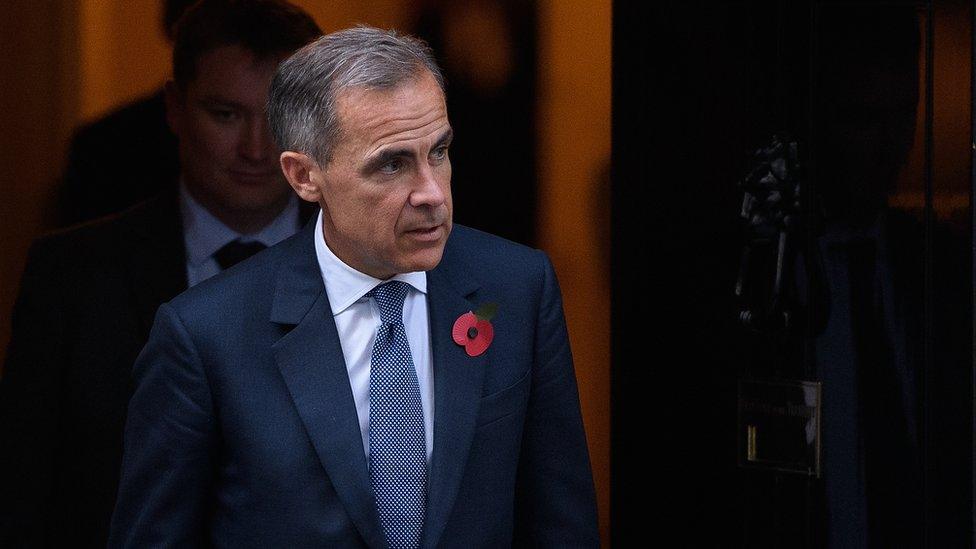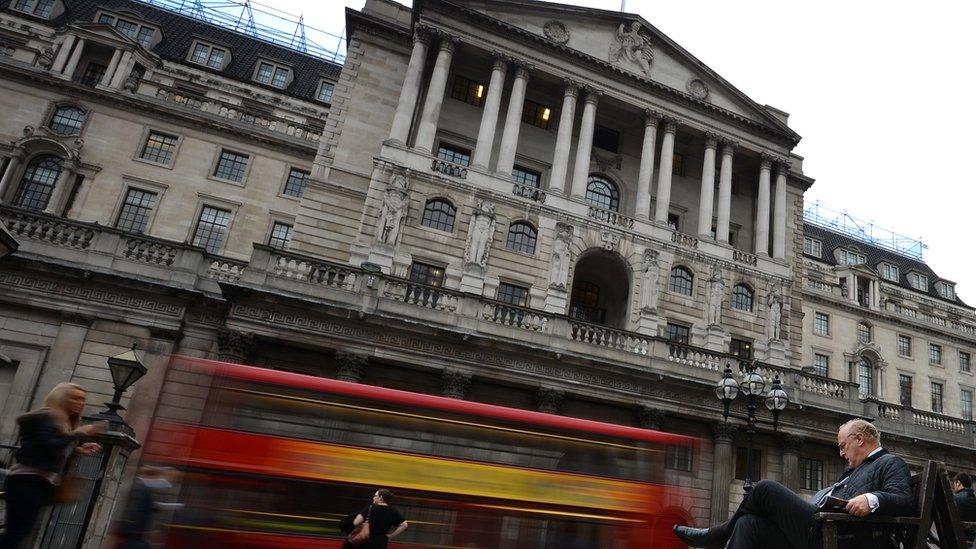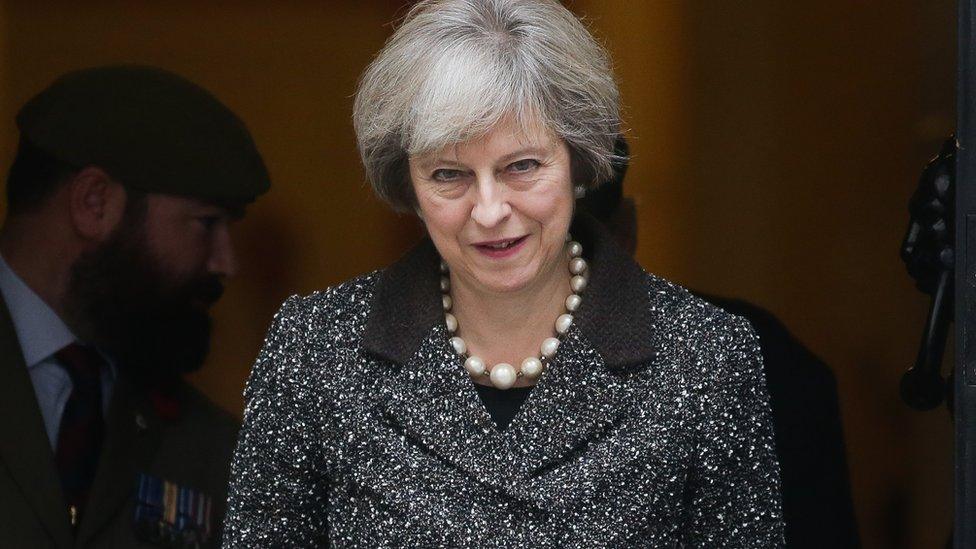Carney: This time it’s personal
- Published
- comments

Sometimes, the simplest explanation is the right one.
After weeks of speculation about whether the Governor of the Bank of England would extend his time as its head in reaction to the referendum result, Mark Carney surprised many people in the City and in government by announcing a decision that few had considered.
Although many officials at the Bank believed that Mark Carney had two options before him - stay until 2021 or leave as originally intended in 2018 - the governor proffered a third.
Extend, yes, but for just one more year.
Superficially, it appeared to be a rather awkward fudge.
Did Mr Carney feel under political pressure not to extend until 2021 despite wanting to?
Was he so disillusioned by the gloomy economic predictions for the UK that he would rather not stick around to see the full effects of the Brexit vote?
Or was there another issue weighing on his mind: how his family would feel about another three years in the UK with a father who is regularly away at some global summit or other one weekend in every two?
The third, it appears, was the clincher.
When Mr Carney took office in 2013, the notion that Britain would be beginning the difficult process of negotiating its way out of the European Union three years later (a process described by the former head of the World Trade Organisation, Pascal Lamy, as something akin to "taking an egg out of omelette"), was a remote one.

But that all changed on 23 June.
Beyond trying to stabilise the economy, it also created a personal issue for the Governor.
If he left in 2018 as originally agreed, it would be right in the middle of Britain's exit negotiations.
Should he, therefore, extend his term to the full eight years that governors would usually be expected to serve?
That might provide a greater level of certainty for jittery markets.
And the Governor certainly understood the challenge of the job had changed, telling those close to him that an extension was an option and he "wanted to serve" - discussions which led to predictions in the media he would serve the full eight years.
But, a number of weeks ago in far more private discussions, he started talking about a "third way" - the short extension.
'Entirely personal'
The reasons were personal and unique.
In 2018, one of Mr Carney's four daughters will be finishing her A-levels, and another will be completing her GCSEs.
For his family, this was the perfect moment to return home to Canada and its much lauded education system.
He hinted at how important that was in evidence to the economic affairs committee of the House of Lords last week.
"To be absolutely clear, it is an entirely personal decision," he said about whether he would extend his stay.
"No one should read anything into that decision as regards government policy - actual, imagined, potential, past. It is an absolute privilege for me to have this role. I fully recognise that.
"Like everyone, I have personal circumstances that I have to manage. This is a role that requires total attention and devotion. I intend to give that for as long as I can. Those are the only factors."

Those around Mr Carney dismiss any notion of "tension" with the Prime Minister, who was certainly keen for the Governor to extend his period in office to 2021. However, Theresa May was clear that it was up to Mr Carney to make the decision.
Neither did criticism from those who believe the Bank's pre-referendum economic forecasts were too gloomy about the effects of a Brexit vote get under his skin, they add.
Professionally, Mr Carney was clear that it would difficult to leave in the teeth of the Brexit negotiations.
But, with his family leaving in 2018 as originally planned, he only felt able to extend his time in the UK by one year.
By then the Article 50 process of decoupling Britain from the EU should be complete. It will then be for a new Governor to plot Britain's economic future.